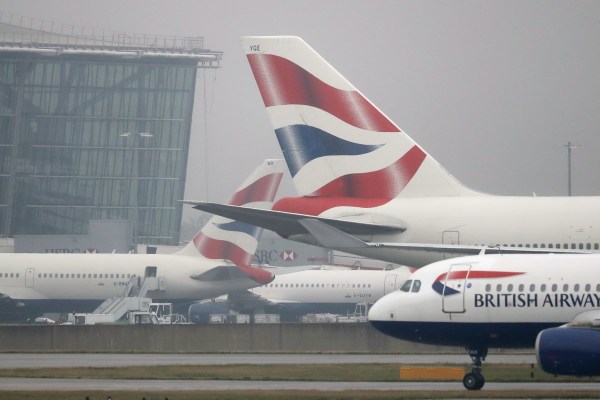LanzaJet, the renewable jet fuel startup spun out from the longtime renewable and synthetic fuel manufacturer LanzaTech, has inked a supply agreement with British Airways to supply the company with at least 7,500 tons of fuel additive per year.
The deal marks the second agreement between the U.K.-based airline and a renewable jet fuels manufacturer following an August 2019 agreement with the British company Velocys. It’s also LanzaJet’s second offtake agreement. The company announced itself with a partnership between the renewable fuels manufacturer and the Japanese airline ANA.
Through the deal, British Airways will invest an undisclosed amount in LanzaJet’s first commercial scale facility in Georgia. The fuel will begin powering flights by the end of 2022, the companies said.
It’s part of a broader expansion effort that could see LanzaJet establish a commercial facility for the U.K. airline in its home country in the coming years.
Back in the U.S. the plan is to begin construction on the Georgia facility later this year, which will convert ethanol into a jet fuel additive using a chemical process.
Fuel from the plant will reduce the overall greenhouse emissions by 70% versus traditional jet fuel. It’s the equivalent of taking almost 27,000 gasoline or diesel-powered cars off the road each year, according to the company.
The deal is the culmination of years of research and development work between LanzaJet’s parent company, LanzaTech, and Department of Energy’s Pacific Northwest National Laboratory.
Spun off in June 2020, LanzaJet was financed by an investment group including parent company LanzaTech, Mitsui, and Suncor Energy. British Airways now joins the two other strategic investors as LanzaJet eyes an ambitious scale-up program through 2025. The company plans to launch four large-scale plants producing a pipeline of renewable fuels.
“Low-cost, sustainable fuel options are critical for the future of the aviation sector and the LanzaJet process offers the most flexible feedstock solution at scale, recycling wastes and residues into SAF that allows us to keep fossil jet fuel in the ground. British Airways has long been a champion of waste to fuels pathways especially with the UK Government,” said Jimmy Samartzis, the chief executive of LanzaJet. “With the right support for waste-based fuels, the UK would be an ideal location for commercial scale LanzaJet plants. We look forward to continuing the dialogue with BA and the UK Government in making this a reality, and to continuing our support of bringing the Prime Minister’s Jet Zero vision to life.”
The LanzaJet fuel is certified for commercial flight up to 50% blend with conventional kerosene. “Considering the aviation market is 90 billion gallons of jet fuel a year, having 50% or 45 billion of production capacity and reaching that max blend level will be a great problem to have,” said LanzaTech chief executive Jennifer Holmgren in an email.
LanzaJet’s manufacturing facility in Georgia is designed to produce zero-waste fuels, according to Holmgren, and British Airways will receive 7,500 tons of sustainable aviation fuel from LanzaJet’s biorefinery each year for the next five years.
The partnership is between British Airways, Hangar 51 (International Airlines Group’s accelerator) and others.
In addition to its biofuel work, British Airways is also working with companies like ZeroAvia, the hydrogen fuels company that also received backing from Amazon, Shell and Breakthrough Energy Ventures.
“For the last 100 years we have connected Britain with the world and the world with Britain, and to ensure our success for the next 100, we must do this sustainably,” said British Airways chief executive Sean Doyle.
“Progressing the development and commercial deployment of sustainable aviation fuel is crucial to decarbonising the aviation industry and this partnership with LanzaJet shows the progress British Airways is making as we continue on our journey to net zero.”


Recent Comments